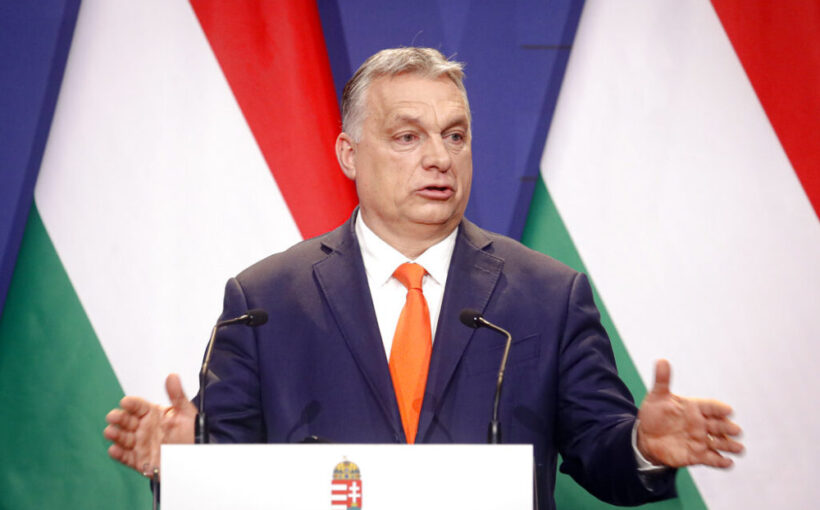Hungarians will go to the polls on April 3 to elect a new parliament, President János Áder said on Tuesday — setting up a likely showdown between longtime incumbent Viktor Orbán’s ruling Fidesz party and a now-unified opposition.
The closely watched race, coming at a time when Budapest is locked in multiple disputes with Brussels over rule-of-law standards, is expected to define whether Hungary will return to the European mainstream or move even closer to Moscow and Beijing.
Orbán and his party are expected to face a six-party opposition coalition that has selected conservative politician Péter Márki-Zay as its joint candidate for prime minister.
Over the past months, some polls put Fidesz and the opposition alliance neck-to-neck, although the opposition appeared to lose some ground in late 2021.
The opposition alliance, which ranges from liberal groups to the right-wing Jobbik party, faces an array of challenges, from internal divisions to an uneven playing field when it comes to access to media and funding.
Nevertheless, opposition leaders have vowed to put their differences aside in an attempt to defeat Orbán, who has been accused of undermining Hungary’s democratic norms and independent institutions.
On the same day as the election, Hungarians will also vote in a controversial government-initiated referendum on LGBTQ+ rights. The move follows the approval last year of legal changes restricting the depiction of LGBTQ+ identities for people under 18, prompting widespread outrage across Europe.
On Tuesday evening, a group of 10 Hungarian rights groups issued a statement calling on the public to cast invalid ballots in the referendum, arguing that the questions it poses — covering issues such as the “promotion” of gender-reassignment treatment for minors — are hateful. Their goal is to invalidate the referendum by keeping the number of properly cast ballots below a required minimum threshold.
Ahead of the election, the Hungarian government has announced a wage hike for public-works scheme participants, a boost in pension payments, a freeze on retail mortgage interest rates and an increase in the minimum wage. The opposition, meanwhile, has criticized Orbán’s handling of the coronavirus pandemic and sought to emphasize its anti-corruption credentials.
Source: Politico


